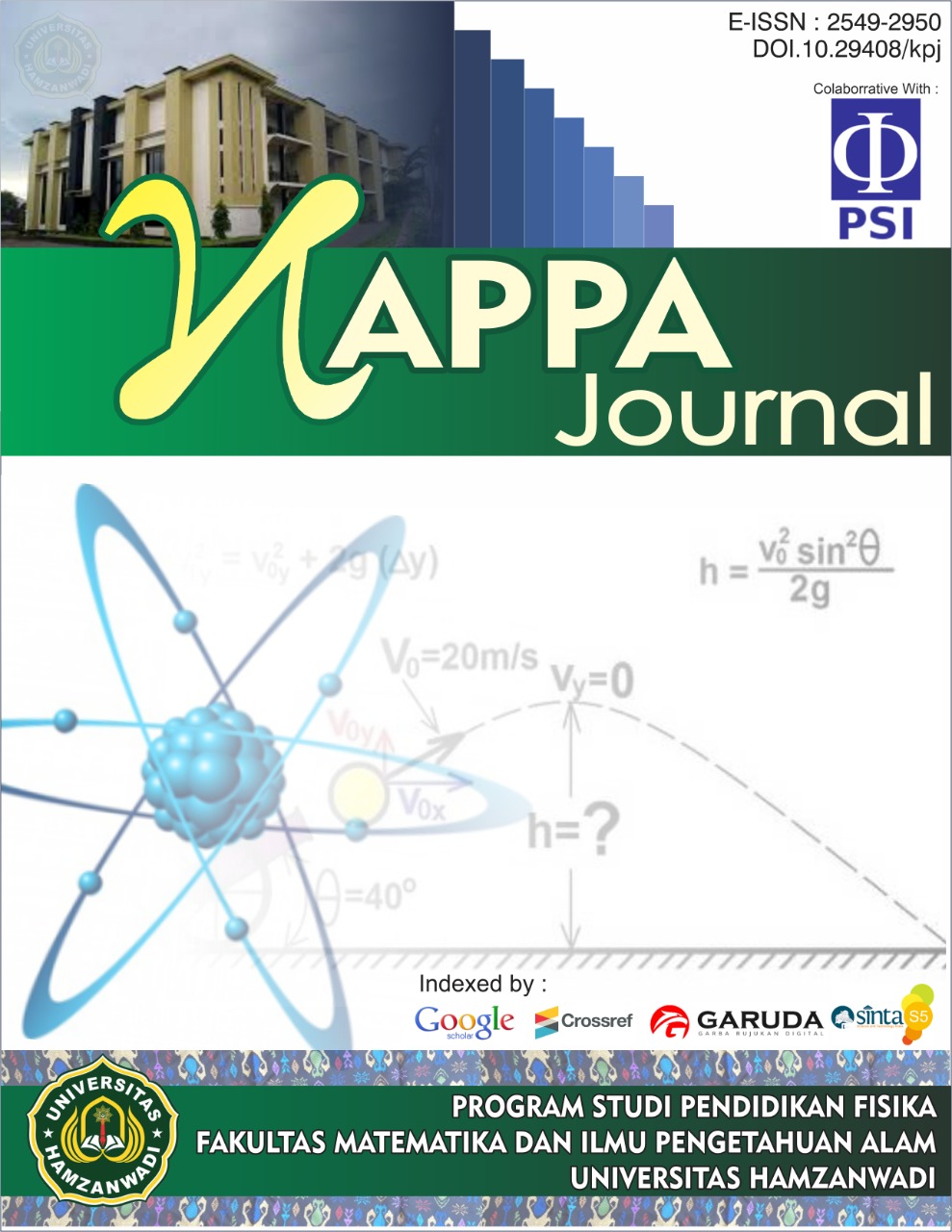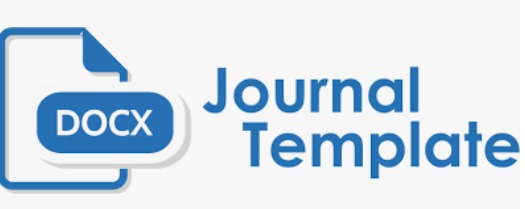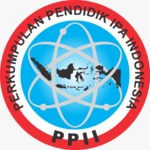Dampak Penggunaan E-Modul IPA Terintegrasi STEM untuk Penguatan Sustainable Development Goals (SDGs) dan Profil Pelajar Pancasila Dimensi Berpikir Kritis: Literatur Review
DOI:
https://doi.org/10.29408/kpj.v8i2.27314Keywords:
E-module, STEM, SDGs, Critical thinkingAbstract
This study aimed to determine the impact of using STEM-integrated Science E-modules to strengthen the Sustainable Development Goals (SDGs) and the profile of Pancasila students in the critical thinking dimension. The method used is a systematic literature review (SLR) approach to identify, disseminate, and synthesize relevant evidence on the impact of STEM integration in e-modules to strengthen the Sustainable Development Goals (SDGs) and Pancasila students' professional critical thinking dimensions. E-modules with a STEM approach have developed rapidly in recent years. This study provides a significant impact and potential for improving the quality of science learning and learning materials for students. Several studies have shown the effectiveness of STEM-based E-modules in enhancing students' critical thinking skills. Previous studies have revealed that the STEM approach can improve students' critical thinking skills.
References
Adhelacahya, K., Sukarmin, S., & Sarwanto, S. (2023). The impact of problem-based learning electronics module integrated with STEM on students' critical thinking skills. Jurnal Penelitian Pendidikan IPA, 9(7), 4869-4878.
Ardianti, S., Sulisworo, D., Pramudya, Y., & Raharjo, W. (2020). The impact of the use of STEM education approach on the blended learning to improve student’s critical thinking skills. Universal Journal of Educational Research, 8(3), 24-32.
Ardianti, S., Sulisworo, D., Pramudya, Y., & Raharjo, W. (2020). The impact of the use of STEM education approach on the blended learning to improve student’s critical thinking skills. Universal Journal of Educational Research, 8(3), 24-32.
Azkiya, H., Tamrin, M., Yuza, A., & Madona, A. S. (2022). Pengembangan E-Modul Berbasis Nilai-Nilai Pendidikan Multikultural di Sekolah Dasar Islam. Jurnal Pendidikan Agama Islam Al-Thariqah, 7(2), 409-427.
Baharin, N., Kamarudin, N., & Manaf, U. K. A. (2018). Integrating STEM Education Approach in Enhancing Higher Order Thinking Skills. International Journal of Academic Research in Business and Social Sciences, 8(7), 810–821. https://doi.org /10.6 0 07/ija rbss/v 8 -i7/4 4 21
Banurea, Simanjuntak, Siagian, & Turnip. (2023). PERENCANAAN PENDIDIKAN. Pediaqu : Jurnal Pendidikan Sosial Dan Humaniora , 2(1) https://publisherqu.com/index.php/pediaqu/article/view/52
Darman, R. A. (2017). Mempersiapkan Generasi Emas Indonesia Tahun 2045 Melalui Pendidikan Berkualitas. Jurnal Edik Informatika, 3 (2), 73–87. DOI: https://doi.org/10.22202/ei.2017.v3i2.1320
Duran, M., & Dökme, I. (2016). The effect of the inquiry-based learning approach on student’s critical-thinking skills. Eurasia Journal of Mathematics, Science and Technology Education, 12(12), 2887–2908.
Elmasari, Yandria & Anggara, Presma (2021). E-Modul berbasis Android pada Mata Pelajaran Simulasi dan Komunikasi Digital Kelas X SMK Sore Tulungagung. JOEICT (Jurnal of Education and Information Communication Technology), 5 (2), 29-39
Elvarita, Anna, Tuti Iriani &, Santoso Sri Handoyo. Pengembangan Bahan Ajar Mekanika Tanah Berbasis E-Modul Pada Program Studi Pendidikan Teknik Bangunan, Universitas Negeri Jakarta. Jurnal Pendidikan Teknik Sipil (JPenSil) 9. 1 (2020): 1-7
Fadieny, N. (2021). Validitas e-modul fisika terintegrasi materi bencana petir berbasis experiential learning. Jurnal Penelitian Pembelajaran Fisika, 7(1). https://doi.org/10.24036/jppf.v7i1.111794
Fadil, K., Amran, A., & Alfaien, N. I. (2023). Peningkatan Kualitas Pendidikan Dasar Melalui Implementasi Kurikulum Merdeka Belajar Dalam Mewujudkan Suistanable Developments Goal’s. Attadib: Journal of Elementary Education, 7(2). https://doi.org/10.32507/attadib.v7i2.1944
Fitriani, E., & Festiyed, F. (2023). THE EFFECT OF STEM INTEGRATED PHYSICS E-MODULES TO IMPROVE CRITICAL THINKING ABILITY OF CLASS XI STUDENTS OF SMAN 2 LUBUK SIKAPING. Physics Learning and Education, 1(2), 124-129.
Hacıoğlu, Y., & Gülhan, F. (2021). The effects of STEM education on the students’ critical thinking skills and STEM perceptions. Journal of Education in Science Environment and health, 7(2), 139-155.
Halawa, A. N., & Mulyanti, D. (2023). Faktor-Faktor Yang Mempengaruhi Peningkatan Kualitas Mutu Instansi Pendidikan Dan Pembelajaran. Inspirasi Dunia: Jurnal Riset Pendidikan dan Bahasa, 2(2), 63.
Hamsyati, M. R., & dkk. (2022). Pendidikan Inklusif. Padang: Pt. Global Eksekutif Teknologi.
Handayani, E. S., Saregar, A., & Wildaniati, Y. (2021, February). Development of STEM-integrated physics e-module to train critical thinking skills: The perspective of preservice teachers. In Journal of Physics: Conference Series (Vol. 1796, No. 1, p. 012100). IOP Publishing.
Herawati dan A. Muhtadi, (2018). Pengembangan modul elektronik (e-modul) interaktif pada mata pelajaran Kimia kelas XI SMA. Jurnal Inovasi Teknologi Pendidik, 5 (2), 180–191, Doi: http://dx.doi.org/10.21831/jitp.v5i2.15424
Irfanto, W. Y. (2022). Problematika Peran Guru Dalam Membentuk Profil Belajar Pancasila Pada Era Digital Kelas Iv Mi Miftahul Ulum Sidowungu Gresik. El-Miaz: Jurnal Pemikiran Dan Pendidikan Dasar, 1(2), 59-65.
Ismail, S., Suhana, S., & Zakiah, Q. Y. (2021). Analisis Kebijakan Penguatan Pendidikan Karakter Dalam Mewujudkan Pelajar Pancasila Di Sekolah. Jurnal Manajemen Pendidikan …, 2(1), 76–84. Https://Dinastirev.Org/Jmpis/Article/View/388
Isroani, F., & Nisa’, I. F. (2023). Upaya Memperkuat Resiliensi Pendidikan Inklusi Melalui Rumah Mengaji Di Masa Pandemi. AL-AFKAR: Journal for Islamic Studies, 6(1), 340.
Jang, H. (2016). Identifying 21st century STEM competencies using workplace data.Journal of Science Education and Technology, 25(2), 284-301.
Kuenzi, J. J. (2008). Science, technology, engineering, and mathematics (STEM) education: Background, federal policy, and legislative action
Kuncahyono. “Pengembangan Softskill Teknologi Pembelajaran Melalui Pembuatan E-modul Bagi Dosen Sekolah Dasar”. Jurnal Pendidikan dan Pembelajaran Dasar. 6.2(2019): 128- 139.
L. Yuliati, A. A. Hapsari, F. Nurhidayah, L. Halim. Building Scientific Literacy and Physics Problem Solving Skills trought Inquiry-Based Learning for STEM Education, In Journal of Physics: Conference Series, Vol. 1108, No.1, [012026], 2018.
Muhaimin, M., Habibi, A., Mukminin, A., Saudagar, F., Pratama, R., Wahyuni, S., Sadikin, A., & Indrayana, B. A sequential explanatory investigation of TPACK: Indonesian science teachers’ survey and perspective. Journal of Technology and Science Education, 9.3 (2019): 269– 281
Mutakinati, L., & Anwari, I. (2018). Analysis of students’ critical thinking skill of middle school through STEM education project-based learning. Jurnal Pendidikan IPA Indonesia, 7(1), 54–65.
Nazifah, N., & Asrizal, A. (2022). Development of STEM integrated physics e-modules to improve 21st century skills of students. Jurnal Penelitian Pendidikan IPA, 8(4), 1783-1789.
Nur‘Inayah, N. (2021). Integrasi Dimensi Profil Pelajar Pancasila Dalam Mata Pelajaran Pendidikan Agama Islam Menghadapi Era 4.0 Di Smk Negeri Tambakboyo. Gerasi: Jurnal Pendidikan Dan Pembelajaran, 1(1), 1–13.
Owens, T.L. (2017). Higher education in the sustainable development goals framework. European Journal of Education, 52(4), 414-420.
Özgenel, M. (2018). Modeling the relationships between school administrators’ creative and critical thinking dispositions with decision making styles and problem solving skills. Educational Sciences: Theory & Practice, 1, 673–700.
Pradhan, P.; Costa, L.; Rybski, D.; Lucht, W.; and Kropp, J.P. (2017). A systematic study of sustainable development goal (SDG) interactions. Earth's Future, 5(11), 1169-1179.
Pratomo, Imam Catur. & Herlambang, Y. T. (2021). Pentingnya Peran Keluarga dalam Pendidikan Karakter. JPPD: Jurnal Pedagogik Pendidikan Dasar, 8 (1), 7–15.
Prayogi, S., Muhali, Yuliyanti, S., Asy’ari, M., Azmi, I. & Verawati, N. N. S. P. (2019). The effect of presenting anomalous data on improving student’s critical thinking ability. International Journal of Emerging Technologies in Learning, 14(6), 133-137. https://doi. org/10.3991/ijet.v14i06.9717
Puspita, K., Nazar, M., Hanum, L., & Reza, M. (2021). Pengembangan e-modul praktikum kimia dasar menggunakan aplikasi canva design. Jurnal IPA & Pembelajaran IPA, 5(2), 151-161. https://doi.org/10.24815/jipi.v5i2.20334
Puspitasari, R. D., Herlina, K., & Suyatna, A. (2020). A need analysis of STEM-integrated flipped classroom e-module to improve critical thinking skills. Indonesian Journal of Science and Mathematics Education, 3(2), 178-184.
R. Mohamad Sattar, Z. Norsalehan, H. Lilia, Abd Rauf, Rose Amnah. Impact of Integrated STEM Smart Communities Program on Students Scientific Creativity, Journal of Engineering Science and Technology, Vol. 11, 80-89, 2018.
Ramadhan, A. (2023). Optimalisasi literasi digital terhadap generasi Z dan merekontruksi moral menuju pendidikan berkualitas perspektif SDGs 2030. Literaksi: Jurnal Manajemen Pendidikan, 1(02), 161-167.
Ramadhani, Y. R., Masrul, M., Ramadhani, R., Rahim, R., Tamrin, A. F., Daulay, J. S., Purba, A., Pasaribu, T. A. N., Asdar, M., Agustin, T., Prianto, C., & Simarmata, J. (2020). Metode dan Teknik Pembelajaran Inovatif. Yayasan Kita Menulis.
Rohmah, U. N., Zakaria Ansori, Y., & Nahdi, D. S. (2019). Pendekatan pembelajaran STEM dalam meningkatkan kemampuan literasi sains siswa Sekolah Dasar. [STEM learning approach in improving science literacy ability of elementary school students]. Prosiding Seminar Nasional Pendidikan , 1, 471-478. https://bit.ly/3rZ99ML
Rudiawan, R., & Asmaroini, A. P. (2022). Peran Guru Pendidikan Pancasila dan Kewarganegaraan dalam Penguatan Profil Pelajar Pancasila di Sekolah. Edupedia, 6(1), 55-63. DOI: 10.24269/ed.v6i1.1332
Safitri, A. O., Yunianti, V. D., & Rostika, D. (2022). Upaya Peningkatan Pendidikan Berkualitas di Indonesia: Analisis Pencapaian Sustainable Development Goals (SDGs). Jurnal Basicedu, 6(4), 7096–7106. https://doi.org/10.31004/basicedu.v6i4.3296
Sari, S. (2024). Making an android-based interactive e-module on reaction rates learning material integrated with Islamic values. Kne Social Sciences. https://doi.org/10.18502/kss.v9i8.15551
Seruni, R., Munawaroh, S., Kurniadewi, F., & Nurjayadi, M. (2019). Pengembangan modul elektronik (e-module) biokimia pada materi metabolisme lipid menggunakan Flip PDF Professional. Jurnal Tadris Kimiya, 4(1), 48-56.
Sholeha, D., Lubis, N. M., & dkk. (2023). Peran Supervisi Pendidikan Dalam Meningkatkan Mutu Pendidikan. Pustaka: Jurnal Bahasa dan Pendidikan, 3(2), 35.
Sidiq, Ricu & Najuah. (2020). Pengembangan E-Modul Interaktif Berbasis Android pada Mata Kuliah Strategi Belajar Mengajar. Jurnal Pendidikan Sejarah, 9(1), 1–14. https://doi.org/10.21009/JPS.091
Telussa, R. (2023). Science e-module based on ethnoscience. International Journal of Elementary Education, 7(4), 657-665. https://doi.org/10.23887/ijee.v7i4.70120
Wahyudi, Verawati, N.N.S.P., Ayub, S., & Prayogi. (2018). Development of inquirycreative-process learning model to promote critical thinking ability of physics prospective teachers. Journal of Physics: Conf. Series 1108, 1-6. https://doi.org/10.1088/1742-6596/11 08/1/012005
Wahyudi, W., Verawati, N. N. S. P., Ayub, S., & Prayogi, S. (2019). The effect of scientific creativity in inquiry learning to promote critical thinking ability of prospective teachers. International Journal of Emerging Technologies in Learning (Online), 14(14), 122.
Yuliati, Y., & Saputra, D. S. (2019). Urgensi Pendidikan STEM Terhadap Literasi Sains Mahasiswa Calon Guru Sekolah Dasar. Proceedings of The ICECRS, 2(1), 321–326. https://doi.org/10.21070/picecrs.v2i1.2420
Yuniarni, D., Linarsih, A., & dkk. (2023). Persepsi Guru TK terhadap Penyelenggaraan Pendidikan Inklusif di Kota Pontianak. Jurnal Obsesi : Jurnal Pendidikan Anak Usia Dini, 7(1), 633.
Zainuri, B. N. S., Gunawan, G., & Kosim, K. (2024). Local Wisdom Integration in Problem-Based Learning E-Modules: Impact on Science Literacy and Science Process Skills. Indonesian Journal of STEM Education, 6(1), 1-8.
Downloads
Published
Issue
Section
License
Copyright (c) 2024 Kappa Journal

This work is licensed under a Creative Commons Attribution-ShareAlike 4.0 International License.
Semua tulisan pada jurnal ini menjadi tanggungjawab penuh penulis. Jurnal Kappa memberikan akses terbuka terhadap siapapun agar informasi dan temuan pada artikel tersebut bermanfaat bagi semua orang. Jurnal Kappa dapat diakses dan diunduh secara gratis, tanpa dipungut biaya, sesuai dengan lisensi creative commons yang digunakan








